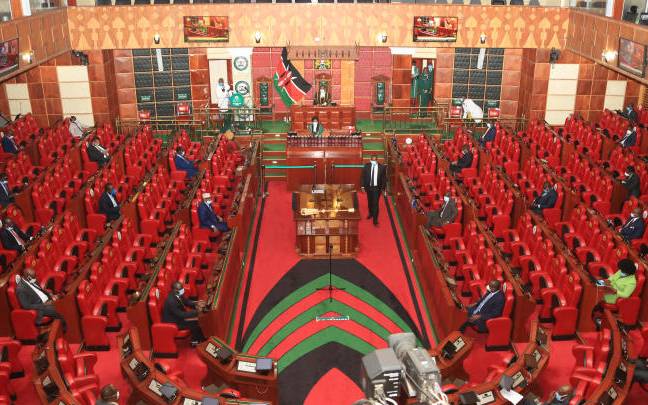×
The Standard e-Paper
Fearless, Trusted News

Parliament in session during the Budget reading of 2020/21 at the Parliament buildings, Nairobi. June 11, 2020. [Elvis Ogina, Standard]
Sometime in the early 1900s, the legendary Kinjikitile Ngwale after allegedly spending 24 hours submerged in water, came out and his body was miraculously still dry.